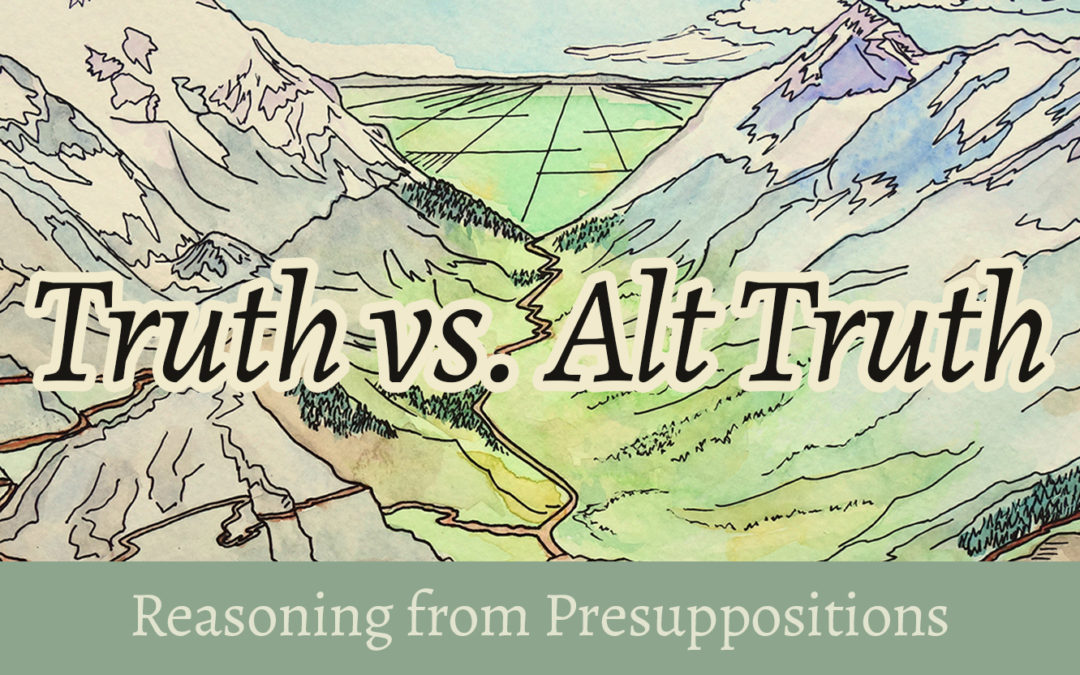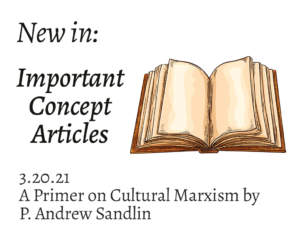Getting into the flow
From Post 1
Where shall we start our search for understanding the polarizing truth conflicts of our time? It makes sense to me to focus on how people think about reality at the presuppositional level of logic. Presuppositions form the framework or the basis for reasoning toward knowledge. They set the course toward what can be known truly and what can be known only in part. Understanding presuppositions can help us manage our differences or reveal why some ways of knowing can never be at peace with others. Looking at the presuppositions of three systems of knowledge—science, Christian theology, and the belief system (ideology) of the Postmodern Movement—will uncover reasons for the extreme polarization of our times.
This section introduces the concept of presuppositions and how they relate to truth that we can know truly. Readers new to these concepts may find them difficult, perhaps causing them to even doubt their value. However, this first look will not be the last look at this description of how we think. The value of understanding this aspect of logic will become clearer as we explain the presuppositions of the Christian faith and of Postmodern Ideology.
Presuppositions: What We Have in Mind Before Reasoning Starts
A presupposition is where reasoning begins. We reason from our presuppositions, not to them. Although it seems natural to talk about presuppositions as something we consciously lay down as we start to reason, many presuppositions are “just there.” We may think that we start with the evidence. But as I hope to explain, this assumption is not always true. Discovering what lies behind our reasoning process can be a challenge and frankly, sometimes an embarrassment.
Absolute vs. Relative Presuppositions
Before examining the presuppositions of different knowledge systems, let’s distinguish two kinds of presuppositions. R. G. Collingwood and Alburey Castell name these two: relative and absolute.
Relative presuppositions are more common to our everyday discourse. Absolute presuppositions are usually recognized only after thoughtful examination and are often unknowingly established as a basis from which to reason.
A relative presupposition can be verified. If we laid a relative presupposition down as a precondition, we can go back and test whether it is true. For example, you might say to me, “I assume this measuring tape is accurate, isn’t it?” If you asked this question, you are looking for proof of the relative presupposition: “This measuring tape is accurate.”
“Yes, it is accurate even if it is made of cloth. I checked it against a steel tape.” Relative to the question asked, I can offer proof. I could show you that the tape measure is accurate even if it is made of cloth. Over time, it might stretch 1/32 or 1/16th of an inch, but for now it is accurate because it gives the same measurement as a steel tape, which does not stretch or shrink.
By contrast, absolute presuppositions cannot be proved. They are in our minds before we attempt to prove what we claim to know. Usually we aren’t aware of their presence; we just use them. Understanding absolute presuppositions takes more than a surface examination. We often take presuppositions to be just the way things are. Even experienced critical thinkers may not realize that when they ask a question, there was already a “given” in their minds basic to the question itself. Getting at absolute presuppositions, especially our own, is a challenge.
Absolute Presuppositions in Science
Just like any system of knowledge, science rests on a set of presuppositions. What, then, is presupposed in order to do science? Further, is the presupposition absolute, or is it relative? Here is a mini-case study to help us identify the absolute presupposition of scientific knowledge.
A corporate CEO decided that he had to find the cause of X for the good of his business. He assembled a team of experts and budgeted for a yearlong study. When a year was up and a new budget was being drafted, he scheduled a meeting of the research team for a full accounting of their progress.
No, the team had not found the cause of X. But they laid out their plans for future research. After considering the findings and their plans, he approved their proposal and funded them for another year.
This process was repeated five times. The costs of the study were mounting, reaching a substantial amount even for a large corporation. After six years, this lack of results called for a tougher review. Should the research go on? Did it have potential? Was the research team simply going down the wrong track?
After again hearing their report and their proposals, the CEO said, “Before I authorize continued research, I need to know the answer to one question: Are you sure that X has a cause?”
Silence. Someone whispered, “What kind of a question is that? Kind of nutty.”
The team leader said, “Sir, I don’t know what you are driving at, but of course X has a cause.”
“How do you know? I have spent millions of company funds investing in a team working diligently to find the cause of X. It seems to me that you have developed a multi-million-dollar body of knowledge supporting a claim that X does not have a cause.”
“But everyone knows that every event has a cause. That is just the way things are.”
(This scenario was adapted from notes taken by the author at a lecture given in the early 1960s by Alburey Castell, then head of the philosophy department at the University of Oregon.)
What can we learn from this case study? The team had not yet found the cause of X, but they had identified an absolute presupposition they had not considered before. It became clear that the team already believed something (an absolute presupposition) that they were not consciously thinking of when they were doing science. They didn’t discover the presupposition by doing science. They discovered an absolute presupposition by being asked how they knew that every event has a cause. They discovered that they knew something with a different kind of certainty than the confidence they had in their empirical analyses. We can give a name to the discovery: it is an absolute presupposition.
Knowing that the team had the presupposition every event has a cause already in their minds provided justification for keeping on keeping on in their search even though the answer was slow in coming. Absolute presuppositions clearly play a role in human thinking, a role we need to recognize. We reason from presuppositions when we seek understanding based on observable facts in the doing of science.
The Beginning of Discovery
So, absolute presuppositions are foundational to thinking and are usually unconsciously held. They can be the basis for doing science, as we have shown.
Recognizing the existence of the absolute presupposition of science that every event has a cause raises a host of questions. For example, if we propose a particular cause for a particular event we are studying, how can we verify it? By what method? With what level of confidence in our findings? The answer provided by this system of thought is famous: the scientific method.
Reasoning from an absolute presupposition like, every event has a cause, and carefully checking our facts and our reasoning with the verification tool, the scientific method, shows us how and what we can come to know truly even if we know in part. If we hold to the discipline of critiquing our observations appropriately, we have a basis for saying we know some things truly.
_____________________
This blog is about “thinking through to a place where we know we know in part, but we know we can know truly.
P.S. Check out the Home Page and the rest of the site! Please pass on the blog address: www.mwstudycenter.com



0 Comments